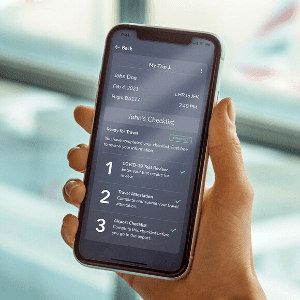 KPMG’s latest publication on education presents a digital blended learning approach as a model to transform the learning ecosystem. The study identifies technologically integrated education as an opportunity to take a large step forward and shape the future that our children, society and the economy deserve.
KPMG’s latest publication on education presents a digital blended learning approach as a model to transform the learning ecosystem. The study identifies technologically integrated education as an opportunity to take a large step forward and shape the future that our children, society and the economy deserve.
The firm finds that digital blended learning will require governments to invest and be the facilitators and drivers of change, forming and mandating an autonomous organization to deliver a new education and learning reality. This will demand public-private partnerships to stimulate the market and drive innovation, and it will need industry and employers to collaborate with the education system to design a relevant curriculum offer and be part of the shaping of the future of learning.
KPMG presents seven critical success factors for all key stakeholders that need to be realized to progress on this journey towards making the workforce more qualified, capable, and employable.
Ziad Zakaria, Senior Director at KPMG in Saudi Arabia, said: “We strongly believe that our findings will cause education leaders to consider what it could mean for their regions, and how we can reimagine our education system and the role that digital blended learning has within it. And we believe adopting blended learning practices that embrace digital and immersive approaches will provide a change for learners and educators to become more qualified and capable members of today’s and the future workforce. KPMG considers digital blended learning to play a wider role in education transformation programs.”
Education system should take benefit of new technology tools such as Artificial Intelligence (AI), Machine Learning (MR), Learning Analytics (LA), Gamification, Augmented Reality (AR) Virtual Reality (VR), smart gadgets and wearables.
The publication further highlights that blended learning allows for flexible class time and structure where students have access to engaging content in the physical and virtual formats. Further, with blended learning, curricula may be personalized and customized to the specific needs of students by engaging them in activities that target their areas of development identified in their individual learning plans.
Blended learning does not restrict students from the important social interactions with each other. In other words, students may still enjoy the sense of being in a group and face-to-face team experiences which are critical for developing life and soft skills.
Whilst KPMG research clearly shows the benefits of a blended learning approach, it argues that also the curriculum and its delivery need to be reimagined.
In the past 18 months, education systems around the world have had to adapt to the seismic changes brought on by the Covid-19 pandemic, causing a digital shock and a transition into distance and e-learning. Many countries, including Saudi Arabia, have had to quickly migrate to online and e-learning solutions, transitioning curricula, classes and lectures onto digital platforms.
































